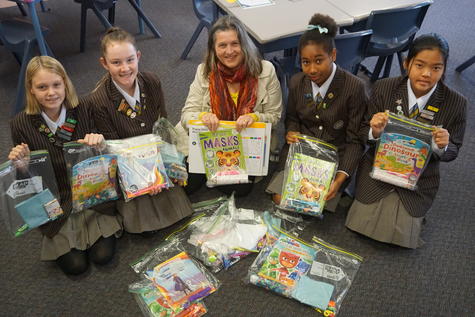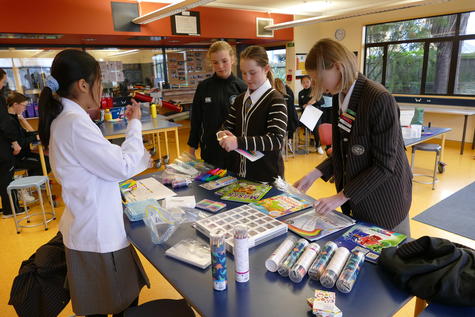
Year 8 students Qiana, Mia, Narin and Lillie have taken on a project to provide care packages for women and children at Women’s Refuge shelters.
The group are part of the school’s Innovation Hub, which gets students to come up with innovative and authentic projects to improve their school or the wider community.
The group decided to focus on supporting women and children while taking refuge. When Covid-19 hit and schools closed down, the project was put on hold.
“While we were in lockdown we started thinking about how the resources for play and learning we had at home helped to make things easier for us, but that some children might not be so lucky.
“So when we got back to school, we contacted Women’s Refuge and they suggested that some activity packs for children would be really helpful,” Qiana said.

“Sarah from the Battered Women’s Trust explained that, since Covid-19, they had not been able to provide toys to families like they normally would because of the risk of spreading germs,” said Mia.
“We thought about how hard that would be, especially for children who might have to leave their own toys at home when they went to Women’s Refuge.
“So we started looking for some sponsors to help us create individual activity packs that can be given to children when they arrive at a shelter.”
Kmart answered the students’ call for help, providing a voucher to be spent in-store, and the students have now created more than 18 care packages for various ages and hope to make more.
Sarah, of the Battered Women’s Trust, said the donated packs will be much appreciated and a wonderful way to support other young people in the community.
“We were blown away by the thoughtfulness of Lillie, Mia, Qiana and Narin and their awareness of our services in the community,” she said.
“The activity packs are an ideal way to put a smile on a child’s face at such a stressful time for the family.”
Selwyn House teacher and Innovation Hub leader Fiona McKenzie said the hub gave students the freedom to pursue meaningful projects based on their own passions.
“These girls identified a genuine issue in our own community, worked as a team to find a solution, and applied their can-do attitude to making their solution happen,” she said.
“That is real-life learning that benefits not only the students themselves, but the world around them.”













